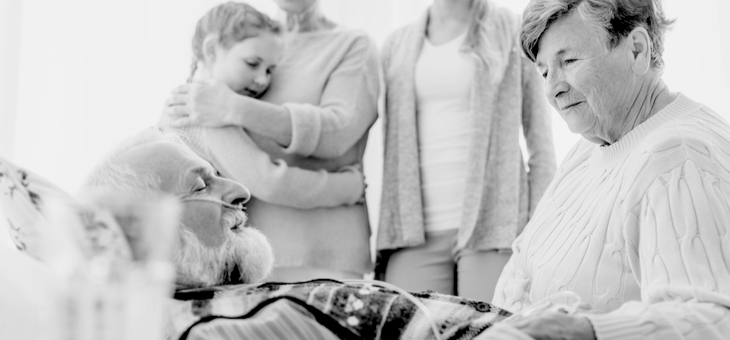Hospitals are no place for older Australians to die, says advocate Dr Stephen Judd, who has joined the chorus of calls for broad policy change in health and aged care.
More than half of all older Australians die in hospital or a medical service facility, according to Australian Bureau of Statistics data.
Around four in 10 (41.5 per cent) of people aged 85 and over died in hospitals, 50.1 died in residential aged care and just 6.9 per cent died in a home setting.
But it’s not just the older demographic with the higher hospital mortality rate. Almost six in 10 (59.4 per cent) of those aged 65-84 died in hospital, 21.2 per cent died in residential aged care and just 15.4 per cent died at home.
Overall, about half of all Australians die in hospital, and about a third in residential care making death in Australia more institutionalised than in the rest of the world.
According to the Grattan Institute report Dying Well, people are twice as likely to die at home in countries such as New Zealand, the US, Ireland and France than they are in Australia.
Report authors Hal Swerissen and Stephen Duckett said: “[People] are … more likely than their forebears to know that they are going to die in the relatively near future. But we are not taking the opportunity to help people plan to die well.
“In the last year of life, many experience a disconnected, confusing and distressing array of services, interventions and relationships with health professionals. Many do not get enough palliative care.”
Dr Judd, who has just been appointed the Council on the Ageing (COTA) inaugural Fellow, also says too many older Australians take their last breath in a hospital when they should be spending their final weeks in a less medicalised, more personal setting.
And he denies government projections of an “apocalyptic and inevitable tsunami” of older Australians with dementia, saying we should be following international examples of preventative health interventions that “bend the curve” on dementia.
Formerly the chief executive of aged care provider HammondCare, Dr Judd wants to see more dignified settings for older Australians in need of later life care.
“Around 50 per cent of Australians die in hospital,” he told The Australian. “This is a ridiculous number, as much as twice that of countries like Canada, Ireland and France.
Read: Dying well – on your terms
“Many are people requiring palliative care but not full hospital care. They may have terminal illnesses with a prognosis of three to six months and could be looked after in their final period in an aged care setting.”
Dr Judd believes this is not only a key health and ageing policy issue, but also a significant business opportunity.
“The implications of carrying on as we are become enormous given the proportion of baby boomers about to enter this phase of their lives. We would have to build a dozen new large-scale hospitals to accommodate them.”
Tasked with working towards changing policies in aged care and advanced healthcare, Dr Judd says dementia prevention would be a particular area of focus in his new role.
Read: The key to better hospital care is … in your home
“We’re told that without a medical breakthrough, the number of people with dementia in Australia will be more than a million by the middle of the century. We’re constantly hearing the message we’re all knackered, we’re all on an escalator to old age and dementia,” he said.
“No one knows if this is true, but I’m pretty sure it’s not. All the research overseas is showing that the curve is bending on dementia as cardiovascular health improves and smoking rates reduce.
“I think the forward estimates in the Intergenerational Report and those in budget forward estimates need to be tested.”
Dr Judd says personal experience influenced his decision to move into the advocacy space in health and aged care.
Read: How to transform our aged care mess into a system that puts older Australians first
“They say all politics is local. Well, all health is personal. And issues of the health and aged care of older people is not relevant just for them, but for all Australians,” he said.
“My interest in the sector stems from having my mother, who had dementia, live with my family. My kids grew up with her in the house. They wouldn’t see aged care just as an issue for their grandma, but for everybody to understand and contribute to.”
Dr Judd’s move has been welcomed by COTA.
“He thinks deeply about the rights of older people, particularly in aged care, and about the respect and dignity they deserve,” said COTA chair Jane Halton.
How was your last experience in a hospital? Why not share your opinions about healthcare and aged care in the comments section below?
If you enjoy our content, don’t keep it to yourself. Share our free eNews with your friends and encourage them to sign up.

